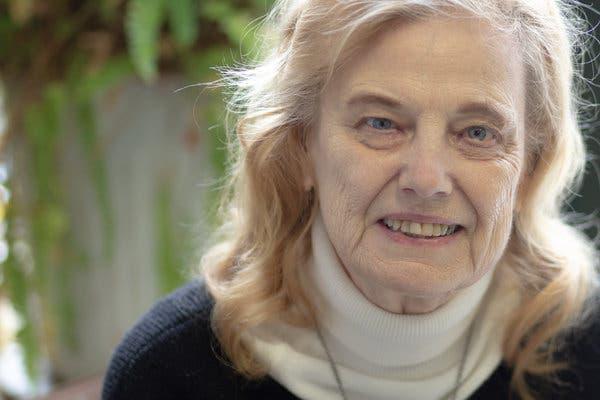|
THOSE WE’VE LOST: Georgianna Glose, a Nun and Activist for the Poor, Dies at 73
By Andrea Elliott
Sister Glose, who died from complications of the novel coronavirus, ran a nonprofit in Brooklyn and was a whistle-blower in a sex abuse scandal. If you passed Georgianna Glose on the streets of Fort Greene, Brooklyn, you might have known her as that renegade nun, the one who left her convent to live among the poor and then blew a whistle on sexual abuse in the Catholic Church. She was a sister with movie-star looks who roller-skated to work, having shed the nun’s habit in 1972 for the curler-coiffed hairdo then in vogue (a look she stubbornly kept). But if you were homeless, you probably knew her as Dr. Glose, the nun with a doctorate who, until last month, ran a nonprofit on Myrtle Avenue. It was there, for 24 years, that the downtrodden found an anchor in a gentrifying neighborhood. Mothers on welfare, fathers on parole, grandparents struggling to raise their children’s children — they all had a haven with Sister Glose, taking her computer literacy classes, joining her support groups, feasting on her Thanksgiving turkey. “She was able to live in both worlds: the world of making a difference for individual families and the world of making policy changes,” said Steven Banks, the city’s commissioner of social services. Sister Glose died on April 28 at Brooklyn Hospital Center from complications of the new coronavirus, said her sister, Kathrine Dawson. She was 73. Authority neither impressed nor deterred her. “If someone was misbehaving, especially a man in a position of power, she would say calmly and completely accurately, ‘That man is a horse’s ass,’” said Teresa Theophano, a social worker who interned with Sister Glose at her nonprofit, Fort Greene Strategic Neighborhood Action Partnership. For years, Sister Glose documented the gruesome conditions at Auburn Family Residence, a city-run shelter nearby, and pushed for reforms. “She would never give in,” said Sister Sally Butler, who lived with Sister Glose for 51 years, serving in the same Roman Catholic order, the Sisters of St. Dominic of Amityville, N.Y. Georgianna Inez Glose was born on Dec. 1, 1946, to Helen and Rudolph Glose, the descendants of Slovak immigrants who lived in Astoria, Queens, and worked as superintendents of an apartment building. The second of four siblings, Sister Glose contracted polio at 5. She had to learn how to walk again, which made her “determined to never let her physical ailments hold her back,” Sister Butler said. After high school, Sister Glose joined the Dominican order and majored in philosophy at Molloy College in Rockville Centre, N.Y., not far from her first ministry assignment teaching fifth grade. That was the traditional route, a nun in habit instructing Catholic school children. But when a shortage of American priests met with the women’s liberation movement, a new door opened for Sister Glose: she could take on pastoral duties formerly reserved for men. Thus began what Sister Glose once described as “the experiment.” She left her convent in 1969 for Fort Greene, joining Sister Butler and a third nun to serve with the priests of St. Michaels-St. Edward Church. She earned a master’s degree at Hunter College and a doctorate in social welfare at City University of New York, writing her dissertation on the institutional racism experienced by African-American Catholic nuns. Her stature rose. She became the chair of the Human Services Department, where she focused on social work, at the New York City College of Technology and the president of a national human services consortium. One of her darkest moments came in 1993, when she and Sister Butler heard that the priests in their parish had sexually abused children. They reported this to the Brooklyn Diocese, and eventually went public with the case, driving a lasting wedge between the nuns and the church hierarchy. Along with her sister, she is survived by her brother, Michael. True to form, Sister Glose kept her nonprofit in Fort Greene open when the pandemic hit. After landing in the hospital, she called one of her best friends, Victor Ayala, to say goodbye. She wasted no time cutting to the chase: Would Mr. Ayala, a colleague, please take over her classes? “She’s about to go under a respirator and she’s calling to tell me what to do with the students,” Mr. Ayala said. “It’s classic Georgianna. Her humanity was just so alive.”
|
.
Any original material on these pages is copyright © BishopAccountability.org 2004. Reproduce freely with attribution.
